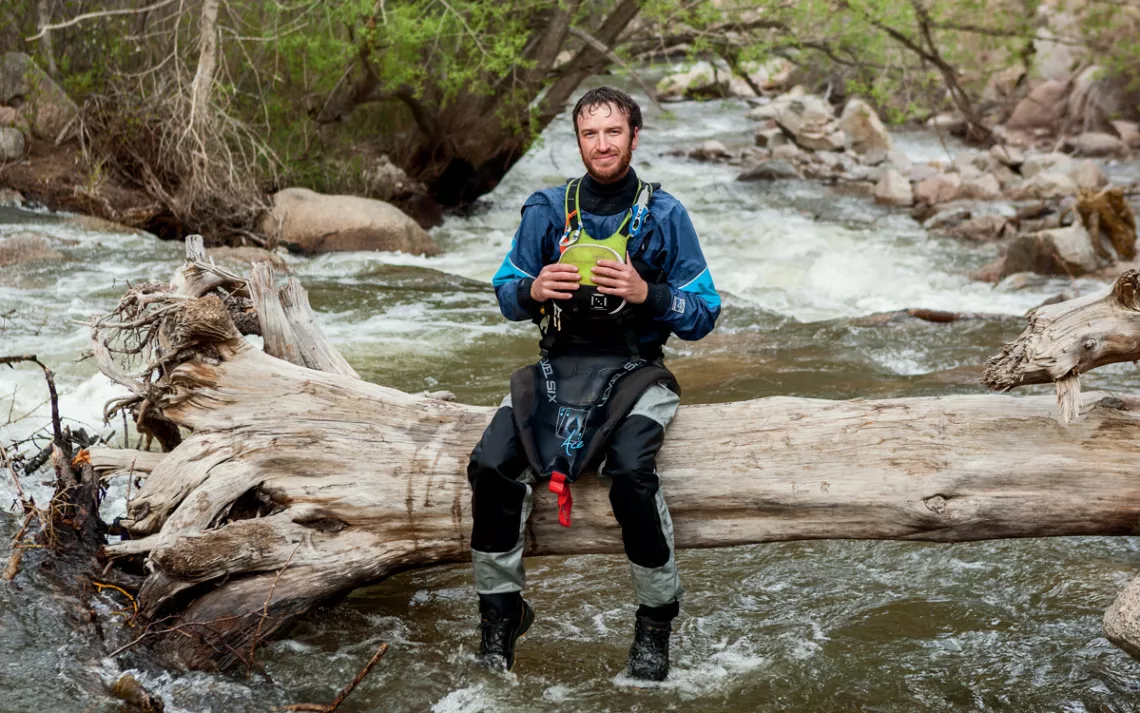Ríos to Rivers Is Not Your Average Exchange Program
Weston Boyles gets youths from Chile and the U.S. on the water together

Weston Boyles, founder of Ríos to Rivers | Photo by Ethan Welty
In 2011, Weston Boyles launched his kayak into Chile's Río Baker, which runs through the Aysén region of Patagonia and boasts some of the world's most remote big-water rapids. A few days into the trip, he met a young man along the river who told him that he belonged to Club Naútico Escualo, a local group of young rafters and kayakers based in Cochrane, a town of about 3,500 near the Río Baker. The stretch of river that had seemed so wild to Boyles runs right by the Escualos' home. The kayaker told Boyles about the club's fight to protect the Río Baker and the Río Pascua, which were under threat at the time from five proposed hydroelectric dams.
"I realized that young kayakers can be the best spokespeople for river conservation," Boyles said, "because they're having fun on rivers in their backyard." In 2012, he founded Ríos to Rivers, an organization that coordinates a river-running exchange each year between young adults from the United States and Chile. Last summer, eight Escualos joined students from Northern California and Oregon—including youths from four Klamath Basin Native American tribes—for a trip along the Klamath River.
During the trip, participants met with scientists to discuss how the Klamath's decades-old hydroelectric dams impact water quality and disrupt salmon runs. The students from the Klamath Basin led the group through salmon roasts and traditional ceremonies.
The Klamath River is slated for the biggest dam-removal project in U.S. history, but the watershed may never fully recover. "Before I came here, I didn't value what I had in Patagonia, a small paradise," said Diego Delgado Rial, a 17-year-old from Cochrane, at the end of the trip.
In February, the Escualos hosted the American students on the Río Baker. The group floated sections of the river on rafts and canoes. When they reached the mouth of the Río Baker, many participants were in tears at the prospect of separating. "They end up feeling a deep connection," Boyles said. "The door into each other's world gives them a profound understanding of river conservation."
This article appeared in the July/August 2018 edition with the headline "River Stewards."
Blocked Up According to International Rivers, roughly two-thirds of the world's rivers have been damaged by the 50,000 large dams built within the last century.
 The Magazine of The Sierra Club
The Magazine of The Sierra Club



